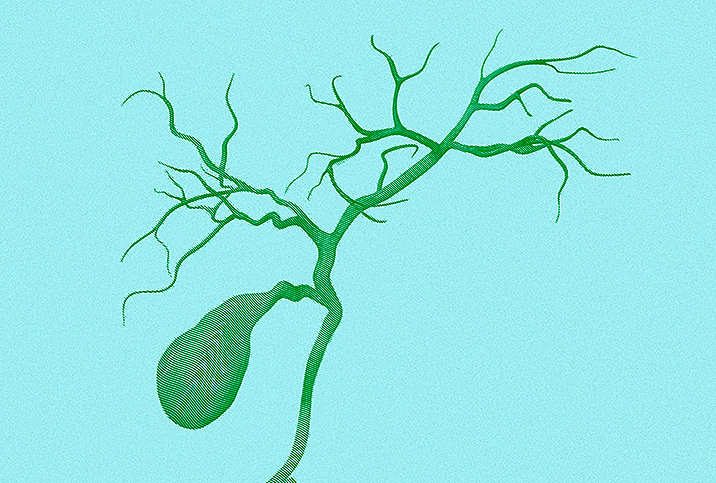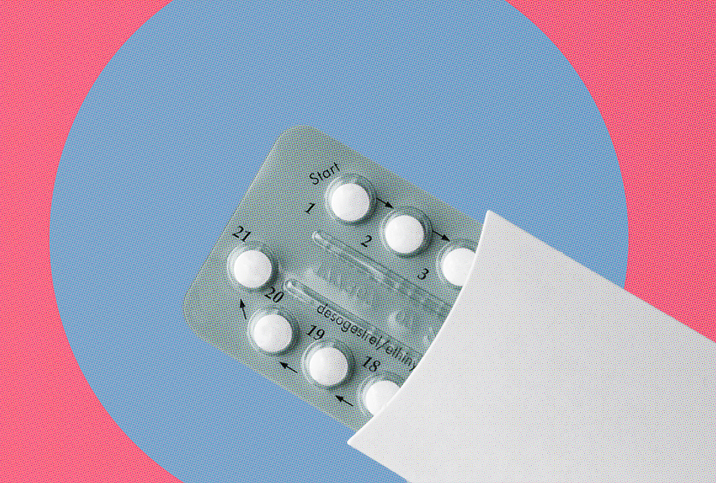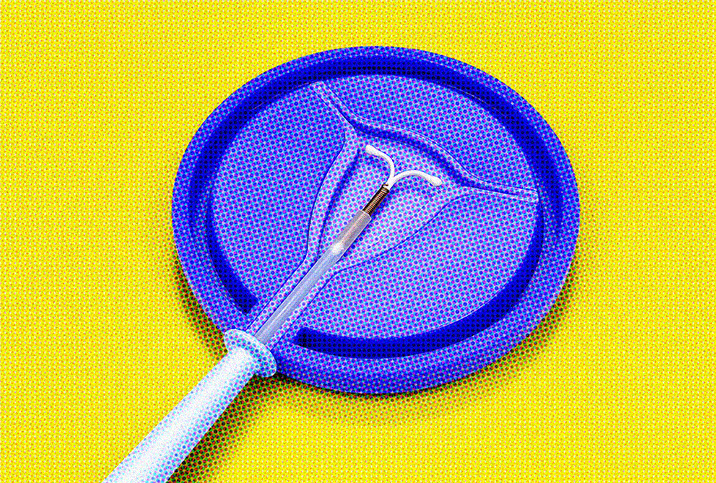Can Oral Contraceptives Really Cause Gallbladder Disease?

In data collected from 2017-2019, the Centers for Disease Control and Prevention (CDC) found that 65 percent of women ages 15 to 49 use some kind of contraception. While methods vary, many of those women rely on birth control pills.
Generally, birth control pills are safe for most women, but those who use the pill may experience common side effects such as spotting, nausea, headaches and mood changes.
According to Planned Parenthood, side effects of birth control pills are usually mild, but some rare—but serious—complications can occur. This form of contraceptive typically contains estrogen, which is linked to an increased risk of health problems, such as blood clots, gallstones and strokes.
Lucie Fink, a popular content creator and video producer, experienced gallbladder disease, most likely due to a rare side effect of her birth control. Ultimately, she had her gallbladder removed after being on combined oral contraceptives (which contain both estrogen and progesterone) for over 11 years. Fink shared her story with her YouTube subscribers to raise awareness about her experience with oral contraceptives and encourage people with periods to advocate for their health.
“About eight years into using the pill, I started to experience abdominal pain. I went to get an ultrasound at a gastro, and I’m told it’s my gallbladder,” she said in her YouTube video about being diagnosed with gallbladder disease. In 2017, Fink, who had not previously been considered at-risk for the disease, got her gallbladder removed.
So what exactly is the correlation between combined oral contraceptives (OCPs) and your gallbladder? According to Joseph Bouganim, MD, a resident OB-GYN, there is some evidence from limited studies that these combined OCPs slightly increase the risk of gallstones and cholecystitis (inflammation of the gallbladder) in two ways.
“The estrogen increases cholesterol production, which builds up in the gallbladder and progesterone can cause the gallbladder to be sluggish (decreased motility). Both of these effects together increase the risk of forming gallstones. These gallstones may go completely unrecognized in some women, while in others may cause a blockage and an infection called cholecystitis (which sometimes requires surgical removal),” he said. However, he added, "there is not any strong evidence that using these contraception methods for longer periods of time increases the overall risk of gallbladder disease."
'The current recommendation from the CDC is that combined pills should be avoided in women with an active gallbladder issue.'
We still have a lot to learn when it comes to oral contraceptives. Fifty years ago, birth control pills had up to 150 mcg of estrogen. Today, most pills on the market are considered "low dose" and contain between 10mcg-30mcg of estrogen. Even with the decreased estrogen, women can still experience side effects. Those who possess the highest risk for gallbladder disease are female, overweight and fertile. So, whether you’re trying not to get pregnant by taking birth control or are already pregnant, both scenarios can put women at greater risk for gallbladder disease because of the increased levels of estrogen and/or progesterone.
But again, these risks are rare. If your birth control is working for you, there’s no reason why you should stop taking it. As Fink said, it’s more about if you have an active gallbladder issue or just want to explore an alternative to hormonal birth control. “The current recommendation from the Centers for Disease Control and Prevention (CDC) is that combined pills should be avoided in women with an active gallbladder issue,” Bouganim said.
Instead, there are a few other options to explore.
One is called a mini pill that consists of only progesterone and is given to women who are at risk for blood clots. (It's worth noting, however, progesterone can cause more mood-related side effects.) Another option would be to explore hormone-free birth control, such as non-hormonal IUDs or condoms.
Understanding your unique body and how comorbid conditions interact with your birth control is key to finding the right contraceptive for you.


















